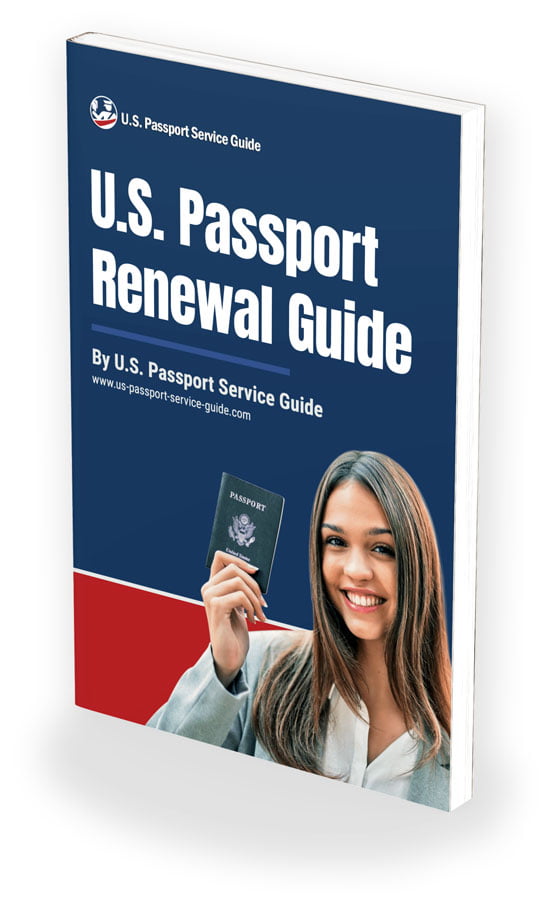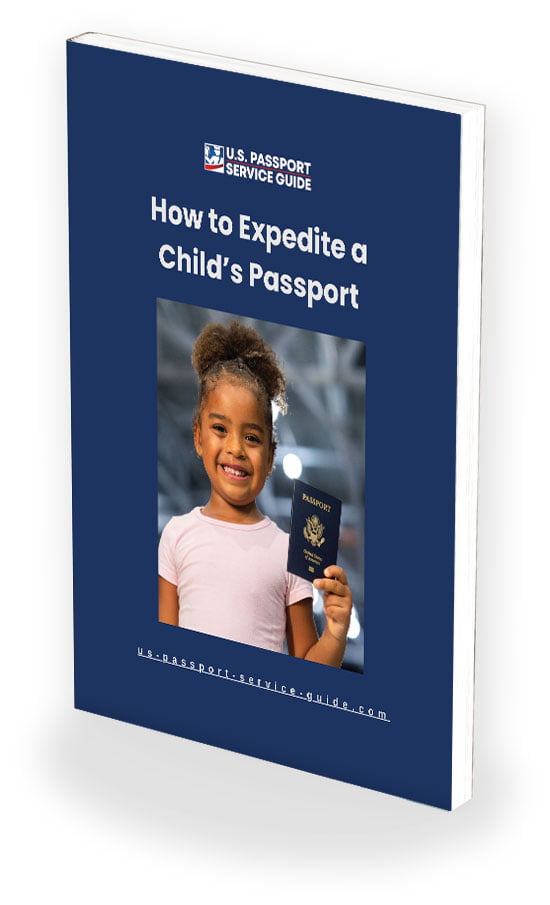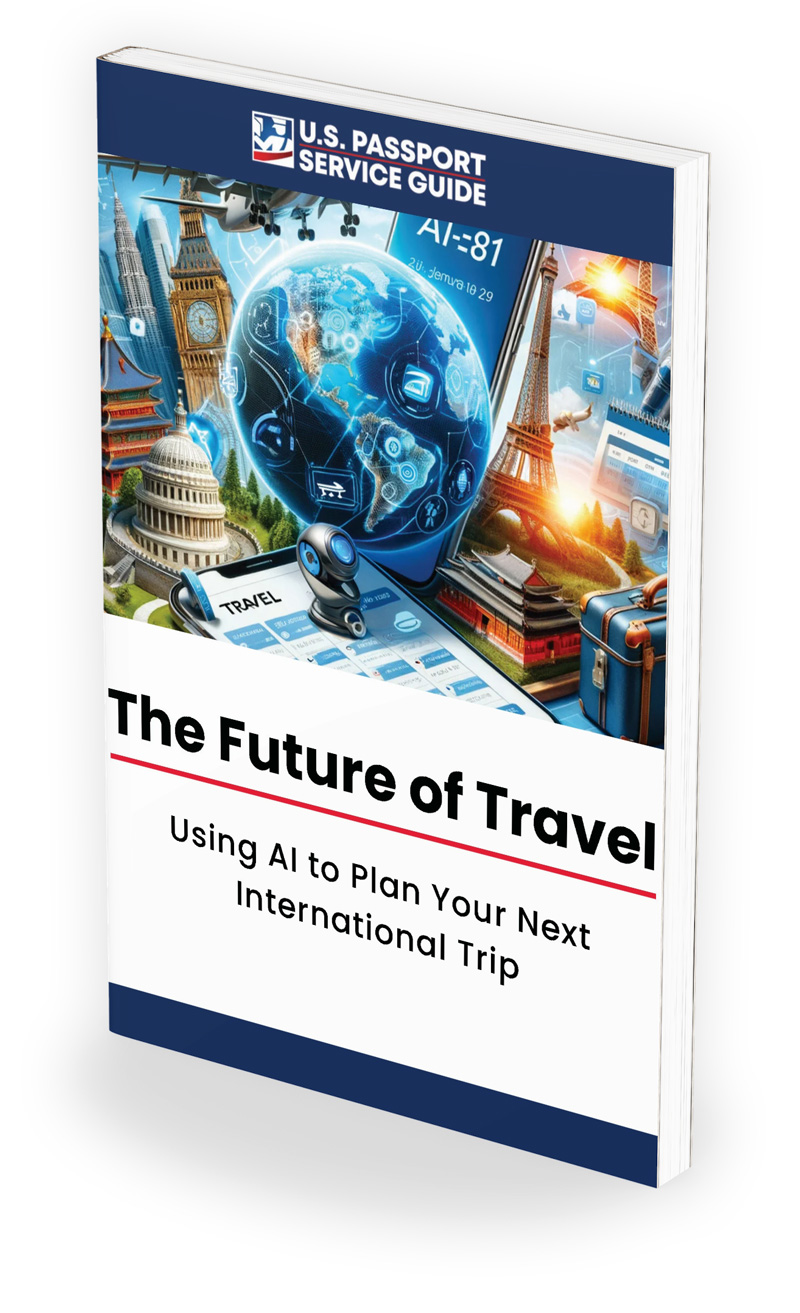While most of us are familiar with using our passports for border crossings and adventures abroad, your travel document holds far more potential than meets the eye. In this article, we’ll unpack the various scenarios where your passport goes beyond being just a travel essential. Your passport can be used as a powerful tool for identification, verification, and opening doors to global opportunities.
Whether you’re a seasoned traveler, someone who keeps their passport tucked away, or someone who still needs to get a passport, take note of these use-cases that go beyond crossing international borders.
Your Passport is an Essential Identification and Verification Tool
Your passport is more than just a travel document, it’s a universal ID.
The U.S. passport, recognized and respected worldwide, is one of the most robust forms of identification you can possess. Its power extends far beyond airport customs and border control.
Your passport can be used as a key to unlock various aspects of your everyday life, serving as a trusted companion in scenarios you might not have considered.
- Global Acceptance: Across the globe, a passport is accepted as a form of identification. It is often preferred over other IDs due to its comprehensive information and security features.
- Domestic Air Travel: In many countries, including the United States, a passport is a go-to document for boarding domestic flights, especially in situations where other forms of ID might not be available or accepted.
- Financial Transactions: Opening a new bank account or carrying out significant financial transactions? Your passport is often the most sought-after document for verifying your identity, surpassing the limitations of local IDs.
- Employment and Education: When applying for jobs or educational opportunities, especially international ones, a passport can streamline the process, acting as a proof of identity and, in some cases, prove your work or study eligibility.
- Age Verification: From purchasing age-restricted items to entering venues with age limits, your passport is an indisputable proof of age, accepted universally.
- Emergency Identification: In emergencies, particularly when abroad, a passport is the fastest way to establish your identity and nationality. This is especially crucial in situations abroad that require help from a U.S. consulate or embassy.
The passport can be used as a powerful identification tool anywhere you need to establish your identity or nationality.
Identification is just the beginning. There are even more ways you can use a passport in your everyday life.
Passports Open Doors to Global Opportunities
Your passport can be the gateway to worldwide opportunities. Its usefulness extends into realms of work, education, and personal growth. Having a valid passport is a useful tool for those looking to broaden their horizons.
- International Work Opportunities: In today’s interconnected world, the ability to work abroad is seen as a coveted asset on a CV or resume. Your passport simplifies the application process for international jobs, serving as a universally accepted proof of identity and, in some cases, work eligibility.
- Educational Prospects: For students aspiring to study abroad, a passport is the first step towards achieving this dream. It not only validates your identity but also is often a prerequisite for applying to international universities and scholarship programs.
- Cultural Exchange Programs: Participating in cultural exchange programs can be life-changing, and your passport is the key to entry. These programs offer unique experiences, from language immersion to professional internships, nearly all of which require a valid passport.
- Global Networking: Attending international conferences, workshops, and seminars often requires a passport. These events are valuable opportunities to build a global professional network and expand your career prospects.
In essence, your passport is a key component in accessing a wealth of global opportunities.
Exploring the Lesser-Known Uses of Your Passport
While the primary functions of a passport are for travel and identification, it can be useful in less obvious scenarios as well. Here, we explore some more of the lesser-known, yet practical ways in which your passport can be an invaluable asset.
- Event Registration: Certain events, especially those involving international participants, may require a passport for registration. It’s not just about security; it’s also about verifying the demographics of attendees.
- Backup Identification: In situations where your primary ID is lost or unavailable, your passport can serve as a reliable backup. It’s especially handy in emergencies or when other forms of identification are not accepted.
- Notarizations and Legal Documentation: Your passport is often the preferred form of identification for notarizing documents or completing legal paperwork, especially in international situations. Your passport contains all the details and security most legal entities require to verify who you are and where you are from.
- Library Memberships: Some libraries, particularly in larger cities or university towns, may accept or require a passport for membership registration, especially for non-residents or international visitors.
These unconventional yet practical uses of a passport highlight its helpfulness beyond its most obvious roles.
Your Passport as a Shield: Security and Emergency Use
Your passport is particularly useful in ensuring your personal safety and security. It is an identifying document equipped with advanced security features making it a potent tool in safeguarding your identity and aiding in emergencies.
- Advanced Security Features: Passports are designed with intricate security elements, making them extremely difficult to forge. This is crucial when you need to prove your identity unequivocally, be it for legal matters or in dealings with government authorities.
- Emergency Situations Abroad: In the unfortunate event of an emergency while traveling abroad – be it a natural disaster, political unrest, or a personal crisis – your passport is your primary source of identification. It’s vital for receiving assistance from embassies or consulates.
- Proof of Citizenship: In situations where nationality or citizenship comes into question, your passport is the ultimate proof. This can be crucial in legal scenarios or when dealing with citizenship-related procedures.
- Trusted Document for Verification Processes: Due to its reliability, a passport is often the preferred document for various verification processes, from employment background checks to security clearances.
Appreciate the security aspects of your passport can provide peace of mind and a level of safety that other forms of identification may not offer.
Passports Provide Legal and Administrative Benefits
A passport’s utility extends into the realms of legal and administrative use cases, where its credibility and comprehensive information simplify and expedite various processes.
- Accelerating Legal Procedures: In legal settings, a passport often serves as a straightforward and accepted form of identification. Its use can speed up processes like juror registrations, notarization, or when serving as an identification document in legal proceedings.
- Facilitating Government Services: When accessing government services or applying for permits and licenses, a passport can streamline the application process. Its comprehensive data and acceptance as a primary ID make it an efficient choice.
- Simplifying Financial Transactions: For significant financial transactions, such as loan applications or major purchases, a passport is often a preferred form of ID due to its detailed information and the security it offers against identity fraud.
- Assisting in Real Estate Transactions: In buying or renting property, especially abroad, a passport can be crucial in verifying your identity and eligibility, often a requirement in international real estate transactions.
The simplicity and efficiency a passport can brings to legal and administrative tasks make it an invaluable asset in navigating complex bureaucratic processes. Opting to use your passport instead of other forms of ID in these cases can simplify already complicated situations.
Tips on Keeping Your Passport Handy and Safe
As we’ve discussed, your passport’s value is immeasurable. This means you need to take care of it! Should your passport become significantly damaged, it becomes immediately invalidated and useless.
If your passport is lost or stolen, not only can it not be used, but you risk more significant issues like identity theft.
Here are some essential tips to keep your passport handy and safe, ensuring it’s ready whenever you need it.
- Proper Storage: Store your passport in a cool, dry place away from direct sunlight to prevent damage. Your storage choice should have enough ventilation to prevent mold growth.
- Avoiding Wear and Tear: Regular handling can lead to wear. When not in use, keep your passport in a protective wallet or a dedicated compartment in your bag.
- Regular Checks: Periodically check your passport’s expiration date and physical condition. Some countries require passports to be valid for at least six months beyond your travel dates.
- Safekeeping While Traveling: When traveling, use a travel accessory like a money belt or a hidden travel pouch to keep your passport secure. Avoid keeping it in easily accessible pockets. Use a waterproof cover to protect it from spills or rain.
- Backup Copies: Keep a photocopy or digital scan of your passport. In case of loss or theft, this can expedite the replacement process and serve as a temporary proof of identity.
- Mindful Sharing: Be cautious about where and how you share your passport information. Only provide details to trusted and verified entities.
By following these tips, you can ensure that your passport remains in excellent condition, secure, and ready for all the diverse uses it offers beyond just travel.
Be Sure to Have a Passport to Embrace its Full Potential
Naturally, all of these benefits are only available to passport holders. If you don’t have a passport, or yours has expired, it is likely unusable for most or all of the applications detailed above.
Our expert advice from decades of helping readers with their passport questions is to always ensure you have a passport with at least 6 months of validity before its expiration date. If you don’t have one, you risk being unprepared for an emergency abroad, an opportunity for international travel, or simply being able to provide acceptable proof of your identity and citizenship.
If you either don’t have a passport, have a passport that has expired (or will soon), or have a passport that needs to be replaced, be sure to visit the relevant pages below. On each page, you will find complete, step-by-step guides including all the forms, timetables, fees, and tips for getting a valid passport quickly.








